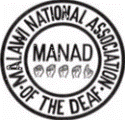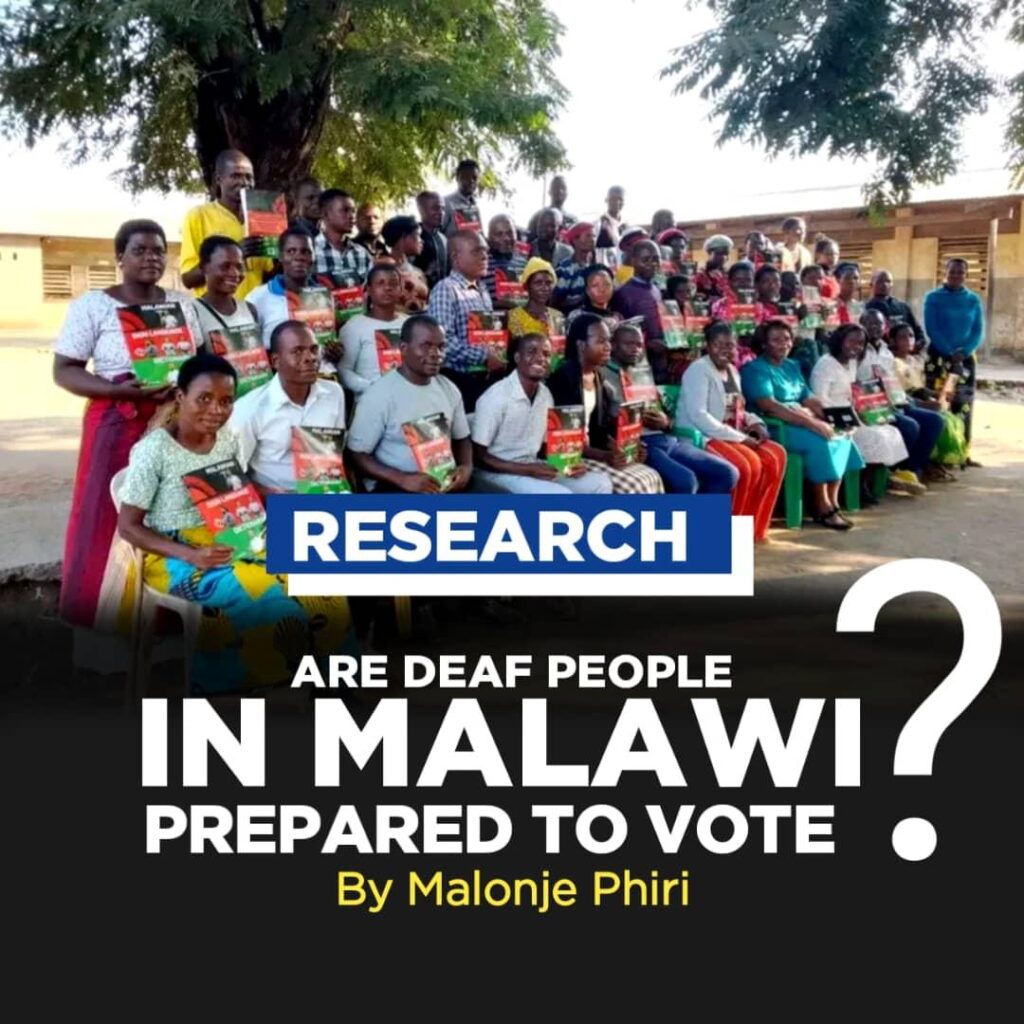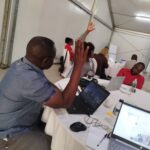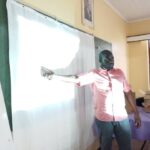By Malonje Phiri – Programme Officer
Since the Finnish Association of the Deaf (FAD) began supporting human rights campaigns in Malawi, Deaf communities have increasingly turned to the UN Convention on the Rights of Persons with Disabilities (UNCRPD) as a key advocacy tool.
Article 29 of the UNCRPD — “Participation in political and public life” — requires governments to guarantee persons with disabilities equal political rights, including the right to vote and be elected. It further calls for accessible voting processes, facilities, and materials to ensure meaningful participation.
As Malawi prepares for a decisive election on 16 September 2025, when citizens will choose the State President, Members of Parliament, and Ward Councillors, one important question emerges: are Deaf people ready to vote?
Voices from the Deaf Community
To explore this, I engaged 23 Deaf Malawians (14 men and 9 women). Six attended mainstream schools without ever enrolling in a school for the Deaf, while 17 attended schools for the Deaf, some later transitioning to mainstream institutions.
Their perspectives reveal both progress and persistent challenges in political participation.
Voter Registration: Who Is In and Who Is Out?
55% of respondents confirmed they had registered to vote.
Most of these were from mainstream schools. Yet, some admitted they still do not intend to cast their ballots — citing disillusionment with government and feelings of exclusion.“I registered, but I won’t vote. Government has never done anything for us Deaf people.”
“Politicians always promise, but nothing changes. Why should I bother?”
45% had not registered.
The majority in this group were those who had attended schools for the Deaf. Their reasons included:The government’s failure to build even one dedicated school for the Deaf.
Belief that voting will not bring meaningful change.
Family discouragement from registering.
Religious restrictions (Jehovah’s Witness faith).
While a few had already decided on their preferred candidates, most remained undecided.
Transfers and the Law: An Untapped Opportunity
Some registered voters had moved to new places of residence but were unable to vote there. This was not due to lack of will, but lack of knowledge.
Under Malawi’s Presidential, Parliamentary and Local Government Elections Act (Section 75(2)), voters can obtain written authorization to vote at another polling station if they have moved for work, school, or other reasons. Unfortunately, none of the Deaf respondents were aware of this law, revealing a major gap in accessible voter education.
Accessing Campaign Messages
Most respondents knew political manifestos exist, but accessing them was another story.
Many relied on social media for updates, though they acknowledged risks of misinformation.
Encouragingly, some cross-checked information with credible outlets like Zodiak Broadcasting Station, The Nation, and The Times.
Yet, frustration was widespread: political messages are rarely available in Malawian Sign Language, captions, or simplified formats. As a result, Deaf people are often left to piece together fragmented or unreliable information.
The Bigger Picture
The findings paint a mixed picture:
While more than half of respondents are registered, actual voter turnout is uncertain.
Disillusionment, communication barriers, and inaccessible voter education remain major obstacles.
For those not registered, systemic neglect, limited education opportunities, family discouragement, and religious restrictions were key reasons.
This situation underscores the urgent need for:
Inclusive voter education in Malawian Sign Language.
Public awareness of electoral laws, including transfer rights.
Government commitment to education for the Deaf, such as establishing dedicated schools.
Accessible campaign strategies from political parties — using interpretation, captions, and disability-friendly outreach.
Conclusion
Article 29 of the UNCRPD makes it clear: political participation is not a privilege but a right. Malawi has a duty to ensure that all citizens — including Deaf people — can vote, stand for election, and engage in public life on an equal basis with others.
As the 2025 polls draw near, the voices of Deaf Malawians remind us that democracy is only complete when every voice counts.



